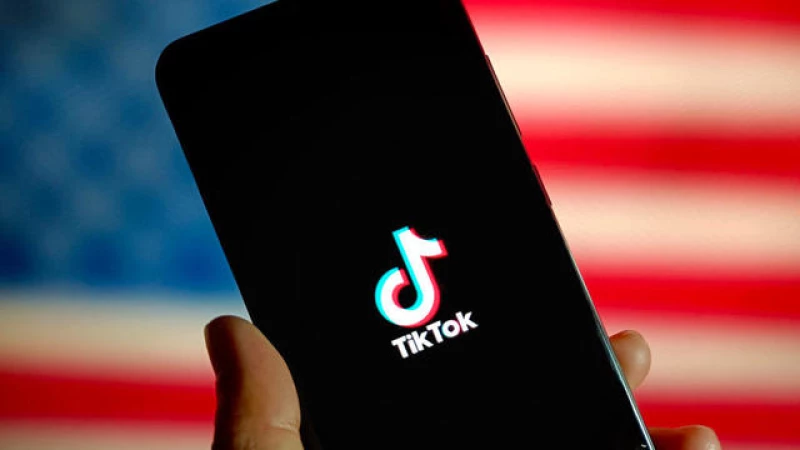If TikTok winds up on the auction block — and that's a big if — former Treasury Secretary Steven Mnuchin is interested.
Mnuchin, who served under former President Donald Trump, told CNBC's Squawk Box on Thursday that he plans to put assemble an investment group to buy TikTok. "This should be owned by U.S. businesses. There's no way that the Chinese would ever let a U.S. company own something like this in China," Mnuchin said.
Mnuchin's remarks came after the House voted 352-65 to a bill that would ban the popular social media app in the U.S. if its China-based owner, ByteDance, declines to sell its stake. He offered no details about who might join the investor group or about TikTok's possible valuation.
After the House's unusual display of bipartisanship, the measure is now headed to the Senate, where it faces an uncertain fate. President Joe Biden has already said he will sign the measure into law if it reaches his desk.
Should the measure be enacted, Bytedance would have six months to fully divest its U.S. TikTok operations to another non-Chinese entity. Barring such a transaction, it would be illegal for app store operators like Apple and Google to make it available.
Who would buy TikTok?
While in the White House, former President Donald Trump in 2020 ordered TikTok be sold to to an American company, with Walmart and Oracle interested in acquiring it. But that deal was ultimately shelved as the Biden administration continued the prior administration's focus on the potential national security risks posed by Chinese technology companies.
After initially leading the charge to ban TikTok, Trump now opposes the bill to force a sale, with the presidential candidate arguing the measure would empower Facebook, which he has bashed for its alleged role in his 2020 election loss.
"Private equity with a potential consortium will look at TikTok, and a number of tech stalwarts will also likely focus on TikTok including Microsoft, Apple, Oracle, and/or joint bids from a handful of Big Tech players depending on the structure and price tag," they said.
Other potential suitors are being considered, including former Activision Blizzard CEO Bobby Kotick, who has discussed the possibility with potential partners, as reported by the Wall Street Journal. The estimated price tag for TikTok is said to be in the hundreds of billions of dollars.
ByteDance was valued at $220 billion during its most recent funding round in 2023, according to CNBC, citing Pitchbook data. TikTok generated global revenue of $36.9 billion last year, as estimated by eMarketer in October. The research firm projects revenues to increase to $46.6 billion in 2024 and $56 billion in 2025.
Despite the substantial cost associated with TikTok and the potential political motivations for a sale, analysts suggest that the regulatory environment in Washington, D.C., may pose challenges for a U.S. acquisition. Given the current antitrust lawsuits against Amazon, Google, and Meta by the U.S. Justice Department, it is unlikely that any of these tech giants would acquire an app with 170 million American users. Apple and Microsoft could encounter similar obstacles.
Alternatively, ByteDance might consider spinning off TikTok through an initial public offering. However, separating the platform's algorithms — a crucial component for any social media company — from its parent company would be intricate and subject to close scrutiny from U.S. regulators.
Complex Negotiations Ahead
Despite the ongoing political uncertainties surrounding TikTok, the likelihood of a ban in the U.S. is estimated at only 25% by Wedbush.
A Senate bill requiring ByteDance to cut ties with TikTok would require 60 votes to pass — a tall order even given a measure of bipartisan support for such legislation.
It would also require Senate Majority Leader Chuck Schumer to bring the bill to a vote. If the New York Democrat thinks a vote to ban TikTok could harm the prospects for his party in tight races, Schumer could decide against bringing the bill for a vote, Wall Street analysts said.
Even assuming a ban becomes law, legal challenges from ByteDance would also likely delay the process.
"We have no way to handicap what happens if this case where to ultimately reach the Supreme Court, with ByteDance/TikTok arguing free speech, while the U.S. government argues national security concerns," said LightShed Ventures analyst Richard Greenfield.
Perhaps the biggest obstacle to a TikTok deal would be getting the Chinese government to cooperate, given that Beijing has said it would staunchly opposed a forced sale.
Greenfield expressed skepticism about the likelihood of ByteDance agreeing to divest TikTok, despite the ongoing pressure from the U.S. government. The road to forcing ByteDance to sell TikTok or face a ban in the U.S. is still long and uncertain, with many obstacles ahead.







